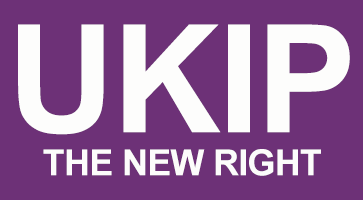DD: Social Media - Rules of Engagement
Appendix DD / Social Media - Rules of Engagement
These are the official rules and guidelines for participating in social media for UKIP. They should be read in conjunction with part 1 of the Guidelines, dealing with the Brand and those authorised to use it. However, these Social Media rules apply to everyone, authorised or not.
If you're a UKIP member or supporter creating or contributing to blogs, wikis, social networks, virtual worlds, or any other kind of social media, these guidelines are for you.
Disclose
Your honesty - or dishonesty - will be quickly noticed in the social media environment. Please represent UKIP ethically and with integrity.
- Be transparent: Use your real name, identify that you work for or represent UKIP (if you do, and are so authorised), and be clear about your role.
- Be truthful: If you have a vested interest in something you are discussing, be the first to point it out and be specific about what it is.
- Be yourself: Stick to your area of expertise; write what you know. If you publish to a website outside UKIP's official domains, please use a disclaimer something like this: 'The postings on this site are my own and don't necessarily represent UKIP's policies, positions, strategies or opinions.'
Protect
Make sure all that transparency doesn't violate UKIP's or your own privacy. Remember, if you're online, you're on the record - everything on the Internet is public and searchable. And what you write is ultimately your responsibility.
- Don't tell secrets: Never reveal confidential information. If you're unsure, check with UKIP press office. Off-limit topics include: litigation, non-published financials and unreleased policy information. Also, please respect brand, trademark, copyright, fair use and party secrets. If it gives you pause... pause rather than publish.
- Don't slam the competition (or UKIP): Play nice. Anything you publish must be true and not misleading, and all claims must be substantiated and approved.
- Don't overshare: Be careful - once you hit "share", you usually can't get it back. Plus being judicious will help make your content more crisp and audience relevant.
Use Common Sense
Perception is reality and in online social networks, the lines between public and private, personal and professional are blurred. Just by identifying yourself as a UKIP member, you are creating perceptions about your expertise and about UKIP. Do us all proud.
- Add value: There are millions of words out there - make yours helpful and thought-provoking. Remember, it's a conversation, so keep it real. Build community by posting content that invites responses - then stay engaged. You can also broaden the dialogue by citing others who are writing about the same topic and allowing your content to be shared.
- Keep it cool: There can be a fine line between healthy debate and incendiary reaction. Try to frame what you write to invite differing points of view without inflaming others. And you don't need to respond to every criticism or barb. Be careful and considerate.
- Did you screw up? If you make a mistake, admit it. Be upfront and be quick with your correction. If you're posting to a blog, you may choose to modify an earlier post. Just make it clear that you have done so - don't just try to make a change and pretend you never made the error. If people can't trust you to own up to your own mistakes, you will lose credibility.
- Think again: Remember that everything you post on the internet, even for a second, may live on forever.
Our 20 tips can help you avoid the most common pitfalls.
